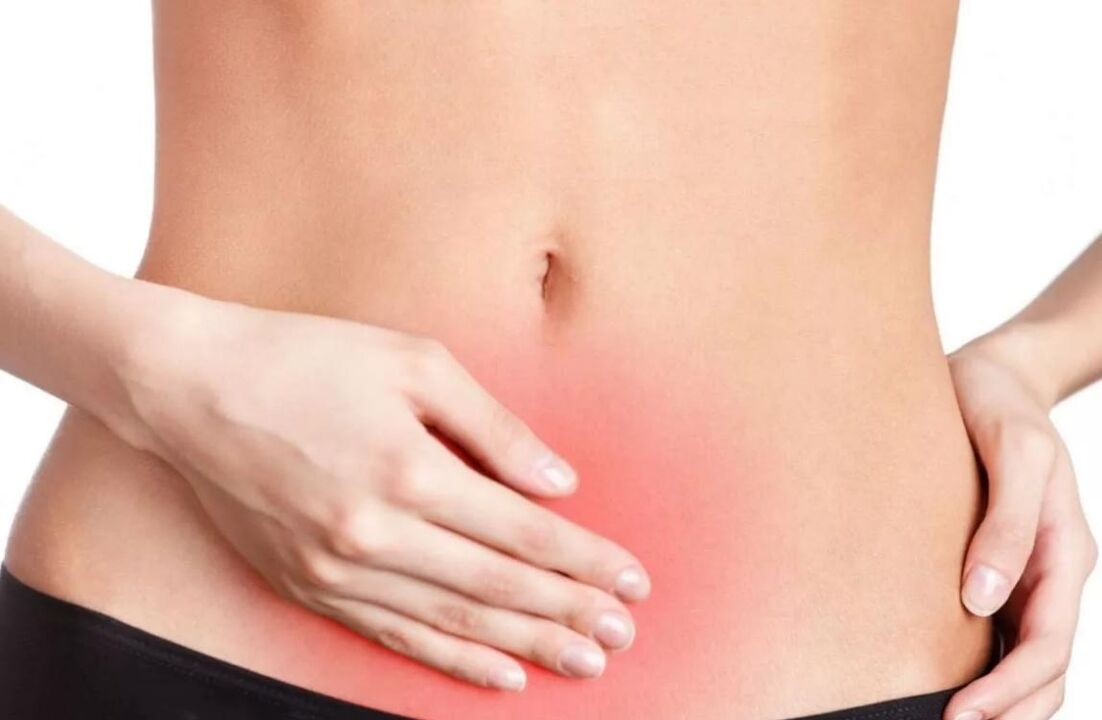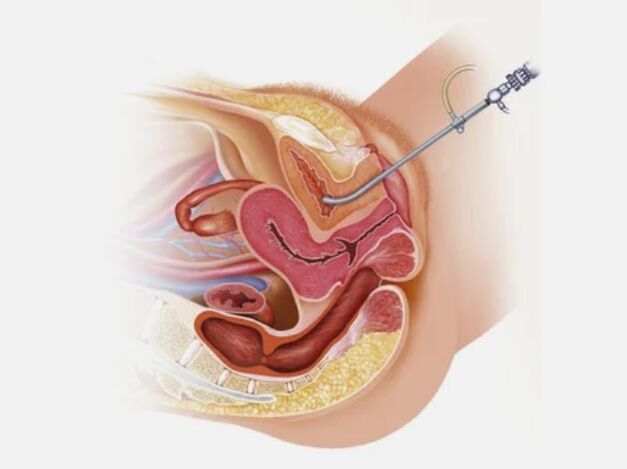CystititeCall the sack inflammation.In most cases, this inflammation stems from bacterial infection and is the type of urinary tract (IMVP).The infection of the bag can be very painful and tedious and it can cause more serious problems if the kidneys rise.
In rare cases, the cystitis may have a reaction to certain medications, radiation therapy or other stimuli: women's hygiene, spermitide gels or sprays for long-term use of urine catheter.The cystitis can also be a combination of another disease.
Typically, Bacterial cystitis requires the recipe of antibiotics.The treatment of other systems of cystitis depends on them.
Symptoms and System Signs
Symptoms include:
The imperative (suddenly and very strong) urinary desire
False urine
Burning during urine
Frequent urine, small urine
Blood in the urine (hematuria)
With a muddy urine and / or urine dog with an unpleasant odor
Concern in the pelvis area
Pressure of pressure in the lower abdomen
Subfebrile Body Heat (up to 37 to 38 degrees)
The sudden appearance of the daily enuries in young children (urine kidnapping) can also be a sign of urinary tract (IMVP).
When will a doctor see
If you have symptoms characteristic of especially for kidney infection, please search for medical care:
Back pain or side
Fire and vibrations
Nausea and vomiting
Often, painful urine, lasts more than a few hours
Blood in the urine.
It is especially important to appeal to a doctor if the cystitis is not the first episode.
If you have completed the course of treatment and the symptoms have already returned, you immediately appealed to the doctor.
If your child has a daylight enure, call your pediatrician
Causes of cystitis and risk factors
The human urinary system consists of two kidneys, two ureter, bladder and urethra (urethra).

The main function of the urine system is to eliminate slag from the body.The kidneys filter blood by releasing the secondary and then secondary urine;Medium urine rots between urethers and is collected in a few hours, then the bladder is filled, the man is called for urine and bladderes through urethra.
Bacterial cystitis
The urinal infection usually occurs when the bacterium penetrates urinary tract through the bacteria and urine.Often, cystitin is caused by the Bacteria of E. Coli.
Bacterial cystitis can occur in women as a combination of sexual intercourse, especially after the first sex in this woman's life.However, even sexual intercourse girls and women are sensitive to low-urinary tract infections, because the women of the genital bodies are obsessive bacteria.
Inadequate cystitis
Nebacterialnym cystitam includes:
Interstitial cystitis.Mesanon, who also called the syndrome of the painful bladder, is still not clear.Most are found in women.It can be difficult to identify and treat this disease.
The drug cystiti.Some medications can cause cemotherapy drugs to the system because they collect and irritate the wall.
Radiation cystitis.Radiation treatment of the Pelvic region can cause inflammatory change in the mesane tissues.
Cystitis of an external object.Long-term use of urinary catheter can increase the risk of bacterial infections and tissue damage;Both of these factors can cause the System.
Chemical cystitis.Some people can increase their sensitivity to chemicals in Jacuzzi, women's hygiene sprays, spermicidnyh jells and other substances.Local chemical irritation or allergic inflammation - causes typical symptoms of cystitis.
Cystitis caused by other factors.Sometimes cystitis, diabetes, kidneys, prostate hypertrophy or spinal cord injury can occur as a complication of other diseases.
Risk factors
Some people develop repeated urinary tract infections than others.First of all, the risk factor is a women's floor - a short urethra makes women more sensitive before this disease.
Among the women, who: Who:
Sexually active.Protalkiivaniya in the sex of sex can lead to bacteria.
Use some contraceptive means.Women who use the diaphragms and other membranes impregnated with the spermicidnym gel suffer more than the cystitis.
Pregnancy.Hormonal changes can increase the risk of cystitis during pregnancy.
Located in menopause.Hormones in women in menopause often implement provokiruyut imvp.
Other risk factors of cystitis are in men and women:
The urinary barrier.Can cause a stone or expanded prostate (men) in the bladder.
Changes in the immune system.It occurs in diseases such as diabetes, HIV infections and cancer chemotherapy.The suppression of the immune system increases the risk of bacterial and in some cases viral cystitis.
Long-term use of urinary catheter.People with older people and some diseases may need to use the urinary catheter.This often damage the growing sensitivity before bacterial infections and damage the mesane tissues.
In men without any inclined factor - cystitis is rare.
Concerns of cystitis
With fast and correct treatment, the cystita rarely leads to complications.However, by treatment in time, the cystitis may lead to more serious diseases.
The complications of the citation include pyelonephritis (infectious kidney inflammation).An infection from inflammatory mesa can fall into the growing kidneys, which in turn can lead to kidney tissue (nephrosclerosis) pyelonefrit and even irreversible damage.
Early children and older people are highest risk of kidney damage due to bladder infections, because the symptoms of kidney damage are often abducted or misused by doctors for signs of other diseases.
Preparation for a doctor's visit
If you have symptoms of your child or cystitis, you must schedule a meeting with a doctor.First, a pediatrician must be examined by a therapist or general practitioner and then deemed to be directed to a urologist or nephrologist.When the reception period is expected, you can make a list to reduce and optimize the time of communication with the doctor:
Write your symptoms, including not visible to Sistitis
Compile a list of all the drugs, vitamins or food supplements you have taken
Write the questions you want to ask your doctor
For example, you can ask the doctor:
What happened to my disease most likely?
Which additional exams should I pass?
In your opinion, which factors contributed to the development of cystitis?
What treatment approach do you recommend?
If this course does not bring comfort, do you advise me?
Which side effects may be expected from the appropriate course of treatment?
What is the risk of recurring this problem?
What can I do to reduce the risk of relapse?
Do I need a narrow specialist, urologist or nephrologist consultation?
Feel free to ask questions that arise with you during chat with a doctor.
Your doctor will probably ask you a few questions, for example:
When did you see these symptoms for the first time?
Have you ever been treated for urinary tract infections?
How strong you are having a concern?
How old are you doing?
How much is after urine?
Do you have back pain?
Do you have a high temperature?
Did you see the discharge from the vagina or blood in the urine?
Are you sexually active?
Do you use creams for contraception?Which?
Not pregnant?
Do you receive drugs, biological additives or vitamins?Do you have chronic diseases?
Have you ever used a urinary catheter?
Diagnosis of cystitis
In addition to interrogating your symptoms and physics examination, your doctor may recommend certain tests and tests:
General urinary analysisThe test is used as a scrigingovy and diagnostic.In this analysis, IMVP can be discussed with the increase in leukocytes, red blood cells and nitrites.
Urine analysis for urine.If the bladder is suspected in the infection, the doctor can set urinary urinary urinary urinary type of urine and their number.
Common blood testThis analysis shows inflamed inflammatory changes in white blood cells and indirectly indirectly indicate the existence and severity of urinary tract (IMVP).
Sistoscopy.During this work, a doctor examines a thin pipe with a cristy pipe and a thin pipe with a delicate pipe, urethra with urethra and the introduction of structural anomalies and inflammation.

While using a systocopy, a doctor can take a sample of a small piece (biopsy) from a suspicious place for laboratory analysis.However, the cystoscope is not shown to all patients with cystitis, but to patients with repetitive or nebethallia.
Visualisyukuushhchie methods.These research methods are not all patients, but only for those who cannot find the cause of the ImVP relapse.For example, the abdominal radiography or retroperitoneal area can determine the structural anomalies of the bag, urethers and kidneys.In some cases, a contrast is carried out in front of radiography, growing (cystography) or descending (intravenous urography).
Treatment of cystitis
The cystitis is usually treated with antibiotics, caused by bacterial infection.The treatment of cystitis, which is not an incement, depends on its reason.
Treatment of bacterial cystitis
The first -line antibiotics are bacteria that are active in the intestinal bar or found in urine during planting.
The main infection.The symptoms are usually noticeably improved in the first days of treatment, but the doctor may insist on third-seven days from seven days seven days seven days depending on the severity of your infection.
Re-infection.If you have a relap of the relapse of IMVP, the doctor can recommend a longer antibiotic treatment or to determine the cause of the treatment of urologist or nephrologist (repeated bacteria, a dose of antibiotics can be useful for some sexual intercourse.
Nosocomial infections.The bacteria caused by the bacteria caused by the pit's nosocomial infections are resistant to the main antibiotics of the Mediterranean infections.Therefore, the doctor can set several antibiotics at a time.
Treatment of interstisal cystitis
The reason for the development of the interstitial cystitis remains uncertain, so there is no universal treatment for all patients at the same time.Doctor can test the following treatment methods:
Preparations used orally or used directly inside bladder.
Symptoms, such as the stretch of the bladder, local procedures filling with water or gas.
Related to light electrical impulses (physio) to eliminate pain in the Pelvic area, in some cases, reduce urinary frequency
Treatment of other forms of insufficient cystitis
First of all, the cause of which causes the inadequate system should be removed: Jacuzzi, sperm, etc.
The treatment of developing cystitis such as gravity of chemotherapy or radiation therapy is washed to reduce pain (usually to use painkillers) and sac.
Lifestyle and home treatment
The cystitis can be very painful, but there are simple home methods to make this anxiety very easy:
Use the heating pillow.Place the heating pillow on top of the lower abdomen, it will make pain and weight in the pelvis very comfortable.
Don't let it thirsty.Drink too much liquid.Avoid coffee, alcohol, caffeine drinks, citrus juices;As well as spicy foods - until the symptoms of cystitis are reduced.These items irritate the bag and can aggravate urinary frequency and intensity.
Take a sedentary bath.The crotch will notice this pain and anxiety in hot water in 15-20 minutes.
Discuss personal optimal optimal tactics of therapy and symptomatic therapy and symptomatic treatment with a recurring IMVP.
Prevention of cystitis
Cranberry juice or tablets from Pro -atocyanid are often recommended to reduce the risk of repeated infections of some women's mesan.Nevertheless, recent studies show that these methods are not as effective as previously thought.
You can still try to accept daily cornel juice, but do not forget that this combination cannot be combined with warfarin because it can cause bleeding.
The following simple rules may be useful for the prevention of cystitis:
Too much liquid, especially drinking water.This is especially important if you receive chemotherapy or radiation therapy.
Hotter more often.If you feel the desire to urinate, do not delay a visit to the toilet.
Delete the dwarf before the defecation.This prevents bacteria from the anal area of vagina.
Take a shower, no bath.If you are prone to IMVP Relapses, you will be a shower because you can give up the bathroom and help the water penetrates the infection inside the bathroom.
Wash skin softly around the vagina and anus.Do this daily, but do not use irritating soaps and do not make energetic effort.About the elegant skin around these areas, irritation occurs easily.
After sexual intercourse, the bags are enough as soon as possible.Soon drink a complete glass of water going to the toilet again.
Avoid deodorant and aerosols, as well as other women's cosmetics in the genitals.These items can irritate the urethra and sac.




























